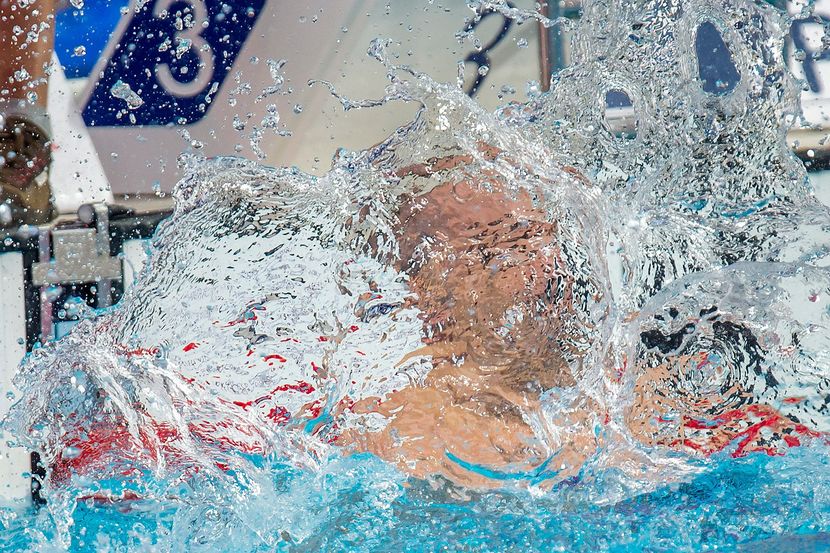
Background: A memorable career
“I started swimming at the age of 6 and at the age of 9 (in 1973) I had my first competition,” Diop says. “At 15 I achieved my first selection on the national team during a meeting of Senegal and Cote d’Ivoire. From 1979 to 1999 I was a member of the national team of Senegal, which enabled me to obtain a medal at the African Games of Nairobi in 1987 and to take part in two Olympiads (1988 and 1992), two African Championships (1982, 1990), four African Games (1987, 1991, 1995 and 1999), combined with many meets in Morocco and championships in France (two in Paris in 1993).” Needless to say, he obtained an elite level that he strives to maintain to this day: “I reached 24.39 in the 50m freestyle in 1986 and 54.23 in the 100m freestyle in 1989. Last year, I could swim 25.90 and 57.20.”
A competitive spirit, with a busy lifestyle
As noted above, Diop’s venture into Masters happened quite naturally because he simply didn’t want to stop swimming. “I love having fun,” he explains, “and sometimes that leads me to challenge the young people or to take part in relays with swimmers who are 30 years younger than me. Even if I practice other sports like basketball and cycling, it is swimming which primarily enables me to maintain my physical shape and stabilise my weight. But my competitive spirit remains; thus one of my objectives is to take part in the FINA Masters World Championships and make a final in the 50m freestyle while swimming around 25.50.”
But Diop takes care to add that his life is certainly not all fun and games. “It is very difficult to balance my training with my professional life as a private doctor. Moreover, my family poses another constraint, even if I can encourage my children to practise swimming. It is sometimes even harder to be beside the swimming pool and not to be able to swim because of my administrative activities (meetings, etc.) related to the fact that I am President of the Fédération. All these constraints mean that I do not have a regular and rigorous programme, but I manage to acquire an average of three sessions of 1km per week, except perhaps during immediate preparations for our great Dakar-Gorée crossing.”
The famous “Dakar-Gorée crossing” to which he refers, is a 5km event that generally takes place every September and attracts about 700 swimmers (both local and from other countries); many of whom are Masters by definition and motive. This race, Mr. Diop informs, “provides a challenge for many Masters, even those who were not skilled swimmers before.” “Many people of more than 70 years of age have swum it,” he adds, “including Mr. Chams Gazy, a senior swimmer who hasn’t missed a Dakar-Gorée edition since 1986.”
Mohamed Diop (SEN)
Engaging swimmers of all ages
“Our organisation is completely voluntary,” Diop explains, “so we are obliged to try and reach all people. Consequently, I sometimes get involved with coaching Masters, but I mostly devote my time to youth. The Masters are subsequently left to themselves for the benefit of the young people.”
Nevertheless, Diop does not underestimate the potential of Masters growth in Africa. “I am very optimistic about Masters development because even if the problem of infrastructures (insufficient number of swimming pools) increases, we can circumvent this difficulty by making special efforts to develop marathon swimming in the coastal countries.”
“Indeed,” Diop continues, “I plan to swim Masters as long as my health will allow. In my opinion, Masters represents the continuation of a philosophy of sport that I acquired at a younger age. It encompasses the values of fraternity, solidarity, respect for others, perseverance, humility, friendship, etc.”
In conclusion, Diop invites former swimmers to integrate into Masters in order to remain in a medium which is already theirs, while having fun and preserving their health. He also invites those who have never practised sport before and want to start to begin Masters, as it is the activity most accessible for people of any age. “In particular,” he says, “ I invite the African countries to develop Masters swimming so that we can sooner organise the first African Masters Championships.”